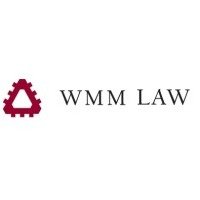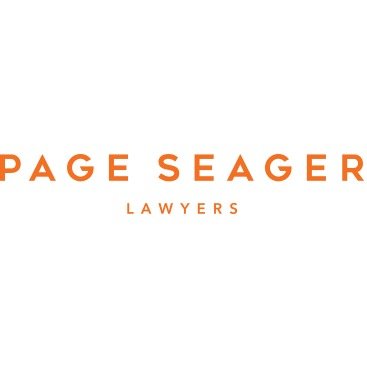Best Restructuring & Insolvency Lawyers in Hobart
Share your needs with us, get contacted by law firms.
Free. Takes 2 min.
List of the best lawyers in Hobart, Australia
About Restructuring & Insolvency Law in Hobart, Australia
Restructuring and insolvency law in Hobart, Tasmania, is primarily governed by federal legislation, but local context plays a significant role. These laws provide a framework for individuals and businesses facing financial distress, allowing them to restructure their affairs or, if necessary, undertake formal insolvency processes such as liquidation or bankruptcy. The aim is to maximize returns to creditors while providing a fair process for debtors. In Hobart, the legal landscape for restructuring and insolvency is shaped by both national statutes and local practices involving courts, liquidators, and other insolvency professionals.
Why You May Need a Lawyer
There are various situations where seeking advice from a restructuring and insolvency lawyer in Hobart is important:
- If your business is experiencing cash flow issues and you want to explore restructuring options to avoid insolvency
- If creditors are threatening to start bankruptcy or winding up proceedings
- When you receive statutory demands or court documents related to unpaid debts
- If you are a director concerned about personal liability for company debts
- To understand your options if facing personal bankruptcy
- When negotiating with creditors or financial institutions
- For advice on directors' duties and obligations during financial distress
- If you are a creditor seeking to recover money owed by an insolvent person or company
- If you are considering purchasing assets from an insolvent business
- Whenever you are involved in legal proceedings dealing with insolvency or restructuring
Lawyers can provide guidance on your rights, help you navigate complex legal processes, and represent you in court or negotiations.
Local Laws Overview
While most restructuring and insolvency matters in Hobart are governed by Commonwealth law, particularly the Corporations Act 2001 and the Bankruptcy Act 1966, local considerations play a role in their application and enforcement.
Key aspects relevant to Hobart include:
- The Federal Court of Australia and the Supreme Court of Tasmania both have jurisdiction over company insolvency and bankruptcy matters
- Professional insolvency practitioners (liquidators, administrators, trustees) are responsible for managing the affairs of insolvent companies and individuals
- Local law firms with expertise in restructuring and insolvency provide advice and representation for both debtors and creditors
- Regulatory oversight is provided by bodies such as ASIC (Australian Securities and Investments Commission) and AFSA (Australian Financial Security Authority)
- The Tasmanian Small Business Advocate can assist with dispute resolution and provide guidance to struggling businesses
It is important to understand that while the overall legal framework is national, local insight and relationships can affect the practical outcomes of matters heard in Hobart courts.
Frequently Asked Questions
What is insolvency?
Insolvency occurs when an individual or company cannot pay debts as and when they fall due. For companies, the definition is outlined in the Corporations Act. For individuals, insolvency usually leads to bankruptcy or alternative arrangements.
What is restructuring?
Restructuring refers to reorganizing the financial and operational aspects of a business to address financial difficulties and avoid insolvency. This can include negotiating with creditors, refinancing, or changing business structures.
How does voluntary administration work?
Voluntary administration is a process where an insolvent company appoints an administrator to assess its options. The aim is to provide a better outcome for creditors than immediate liquidation, often through a deed of company arrangement.
What is liquidation?
Liquidation is the winding up of a company’s affairs by selling its assets to pay creditors. Once the process is complete, the company ceases to exist. There are different types, including voluntary and compulsory liquidation.
What is bankruptcy and how is it declared?
Bankruptcy is the legal process by which an individual who is unable to pay debts is declared bankrupt either voluntarily or by a court order. A trustee is appointed to manage the person’s financial affairs and distribute assets to creditors.
Can I keep my house or business if I become bankrupt?
Whether you can keep your house or business depends on your circumstances. In many cases, bankruptcy may result in the sale of significant assets, including property, to pay creditors. Some assets may be protected, but this should be discussed with a lawyer.
What are the duties of company directors during times of financial distress?
Company directors have a duty to act in the best interests of the company. During financial distress, directors must avoid trading while insolvent and should seek early legal advice to minimize risk of personal liability.
Should I pay creditors if my business is about to go into liquidation?
Payments to creditors prior to liquidation might be considered preferential payments and can be recovered by a liquidator. It is important to seek legal advice before making any payments if liquidation appears likely.
How are creditors paid in an insolvency process?
Creditors are paid according to a priority order set out in law. Secured creditors usually come first, followed by employees and unsecured creditors. Often, there are insufficient funds to pay all debts in full.
How can I protect myself as a director of a struggling company?
Directors should seek immediate professional advice if their company is facing financial difficulty. Keeping proper records, acting promptly, and being transparent with stakeholders can reduce the risk of personal liability.
Additional Resources
If you need information or assistance, the following resources may be helpful:
- Australian Securities and Investments Commission (ASIC) - Regulates company law, insolvency practitioners, and provides educational materials
- Australian Financial Security Authority (AFSA) - Oversees bankruptcy and personal insolvency
- Tasmanian Small Business Advocate - Offers guidance and dispute resolution for local businesses
- Supreme Court of Tasmania - Handles insolvency-related proceedings in Tasmania
- Local Hobart law firms specializing in restructuring and insolvency
Next Steps
If you are facing financial difficulties or are involved in a restructuring or insolvency situation in Hobart, consider the following:
- Gather all relevant financial documents and information about your business or personal assets and debts
- Contact a local law firm or insolvency practitioner with experience in Hobart and Tasmanian matters
- Discuss your situation openly and honestly to explore all available options before making major decisions
- Be proactive - early engagement with professionals can improve outcomes and reduce personal risk
- If required, seek support from government resources and industry bodies for additional information and guidance
Taking these steps can help you make informed decisions, protect your interests, and work towards the best possible resolution of your financial challenges.
Lawzana helps you find the best lawyers and law firms in Hobart through a curated and pre-screened list of qualified legal professionals. Our platform offers rankings and detailed profiles of attorneys and law firms, allowing you to compare based on practice areas, including Restructuring & Insolvency, experience, and client feedback.
Each profile includes a description of the firm's areas of practice, client reviews, team members and partners, year of establishment, spoken languages, office locations, contact information, social media presence, and any published articles or resources. Most firms on our platform speak English and are experienced in both local and international legal matters.
Get a quote from top-rated law firms in Hobart, Australia — quickly, securely, and without unnecessary hassle.
Disclaimer:
The information provided on this page is for general informational purposes only and does not constitute legal advice. While we strive to ensure the accuracy and relevance of the content, legal information may change over time, and interpretations of the law can vary. You should always consult with a qualified legal professional for advice specific to your situation.
We disclaim all liability for actions taken or not taken based on the content of this page. If you believe any information is incorrect or outdated, please contact us, and we will review and update it where appropriate.









